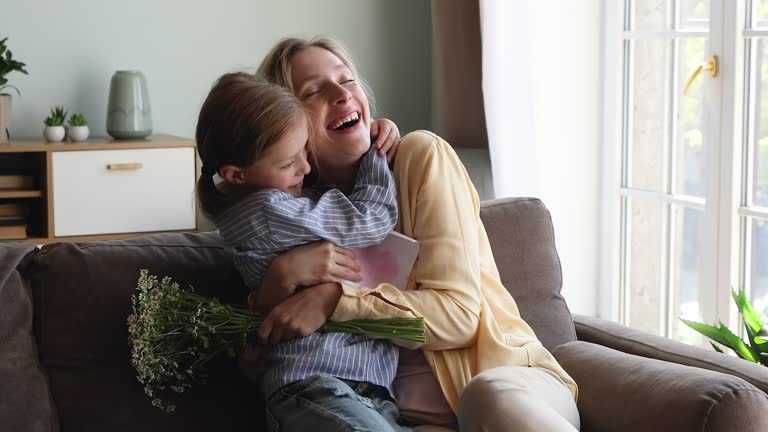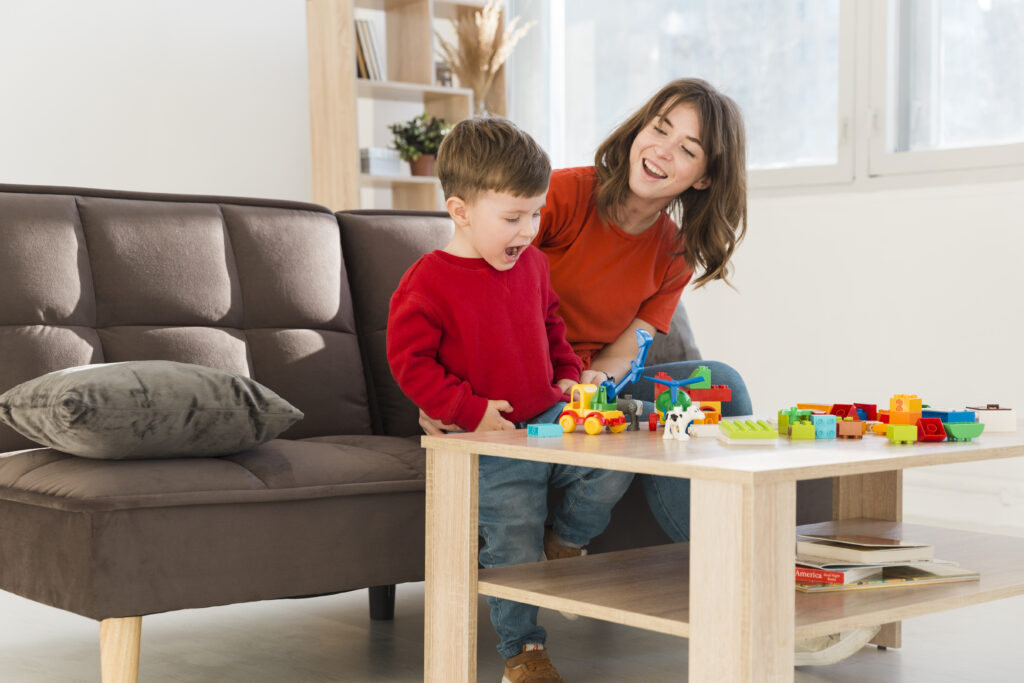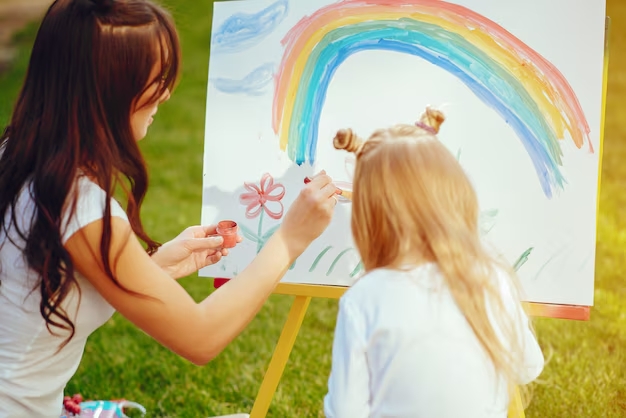Parenting is easy — said no one ever. In today’s world, positive parenting has become more than just providing food and shelter; it’s about raising emotionally strong, compassionate, and confident individuals. Let me start by sharing something I’ve often heard: “We’ve raised kids too, and it’s not that hard!” or “You’re just overthinking things.” These words often come with examples of how someone raised a house full of kids with ease, almost like it was second nature.
But honestly, times have changed. Parenting today isn’t just about meeting basic needs like food and shelter. It’s about shaping kids into emotionally strong, compassionate, and confident individuals. And trust me, that’s easier said than done.
Why Choose Positive Parenting?
For me, the journey of positive parenting started when I realized something profound: instead of focusing on teaching my kids, I needed to teach myself. How can I stay calm when my child throws a tantrum? How can I be patient in difficult moments and still maintain my sense of self?
Children don’t just listen to our words—they observe our actions. Positive parenting, in my experience, is all about modeling the behavior you want your children to learn. It’s about fostering a nurturing environment without losing your own wellness.
And let me tell you, I’m far from perfect. But I try every day. I’m not just raising my kids; I’m growing alongside them.

How Positive Parenting Builds Stronger Bonds?
Positive parenting is an approach focused on building strong relationships, creating a positive atmosphere, and guiding children with warmth and support rather than punishment or criticism.
One key idea that resonated with me was authoritative parenting, another term use for Positive parenting I found while exploring parenting tips, a concept introduced by Dr. Diana Baumrind in 1967. Her research showed that children raised by parents who balance warmth with structure grow up to be happy, capable, and resilient. These children often have higher levels of life satisfaction as adults.
What struck me most about this research is how it emphasizes finding a balance—being firm yet loving. It’s something I strive to practice daily, though it’s not always easy!
Discovering PRIDE Skills in Positive parenting
As I explored positive parenting techniques, I came across PRIDE skills, and they instantly clicked with me. They’re practical, easy to understand, and have made such a difference in how I connect with my kids.
Praise – Encourage Positive Behaviors

Praise is a powerful tool in parenting. It helps children understand what behaviors are appreciated and encourages them to repeat those actions. Research shows that specific and labeled praise is far more effective than generic statements.
Instead of saying, “Good job,” I now focus on being specific: “I’m so proud of how neatly you cleaned up your toys!” This approach teaches children exactly what they did right, helping them understand and replicate positive behaviors.
When my son shows kindness to his little sister—like helping her pick up something she dropped—I say, “You helped your sister! That was so kind of you.” Acknowledging kindness in this way encourages empathy and strengthens their sibling bond.
Praise matters because it helps children understand what they did right, boosting their confidence and self-esteem. It encourages a growth mindset by reinforcing effort over outcomes and strengthens emotional bonds through genuine, heartfelt appreciation. Simple gestures like a smile, hug, or high five enhance its impact. By focusing on their positive actions, you’re shaping both their behavior and character, fostering a supportive and nurturing environment that builds resilience.
Reflect – Strengthen Communication and Confidence

Reflections are a powerful way to build a stronger connection with your child. By repeating or paraphrasing what they say, you show them that you’re genuinely listening while encouraging them to express themselves more freely. This also supports their speech development and boosts their confidence in communication.
For example, my son loves helicopters. While playing with Duplo blocks, he often builds a helicopter and comes running to show me, saying, “Mama, look! I made a helicopter!” I respond with excitement, “Wow! You made a helicopter—it’s amazing!” This not only makes him feel proud but also deepens our bond through positive communication.
Reflections are effective because they give children the space to lead conversations, boosting their confidence. They encourage back-and-forth chats, motivating kids to share more, while helping improve grammar and vocabulary as their words are reflected correctly. Unlike direct questions, reflections create a pressure-free environment, allowing children to open up. Incorporating reflections into daily interactions turns everyday conversations into meaningful learning moments.
Imitate – Strengthen Bonds and Social Skills
When you imitate your child’s actions, you’re sending a powerful message: “What you’re doing is important, and I want to do it too.” It’s such a simple thing, but it works wonders for building connection, boosting creativity, and even helping with social skills.

At our house, playtime is never just for the kids—I’m always right there with them. My son loves making helicopters with blocks. So, instead of just watching, I sit with him and start connecting blocks too. Honestly, it can feel a little boring sometimes, but it’s totally worth it. He gets so excited, and it makes him feel like what he’s doing really matters. Plus, it’s amazing to see his creativity grow when he tries out new ideas.
We also love playing pretend games. One of our favorites is building a “house” by throwing a big sheet over the sofa and windows. My son pretends to go to the market, just like his dad, and “buys” fruits. Then we sit together, “cut” the fruits, and make juice. It might sound silly, but we have the best time. These little moments create memories that I know we’ll treasure forever.
Imitation is special because it builds confidence, showing children they’re valued. It demonstrates involvement, as your attention means the world to them, and boosts social skills like sharing and turn-taking. It sparks creativity, encouraging exploration, and strengthens bonds through shared moments. Playing along, no matter how small or silly, shows you’re invested in their world, forming the foundation for a strong, loving relationship.
Describe – Build Focus and Vocabulary

Describing your child’s actions makes them feel valued and boosts their self-esteem. When you say things like, “You’re putting the red block on the blue one,” or “You’re drawing a rainbow,” they feel seen and appreciated. These affirmations keep them engaged, help them focus, and introduce new words and concepts naturally.
When I play with my son, he loves building with blocks. I watch closely and say, “You built a helicopter! You’re using red and yellow blocks.” During pretend play, I describe his actions like, “You’re cooking food,” or, “You’re making roti.” Even small comments like, “You’re putting on your shoes,” show them that their efforts matter. These moments make every activity feel important to them and deepen their interest.
Describing is effective because it lets children lead play, boosting their confidence and control. It shows your interest, reinforcing that what they do matters to you, and helps improve focus and attention span as they stay on task longer. It also teaches new vocabulary, adding words like colors, shapes, and actions to their everyday understanding. Descriptions turn simple activities into valuable learning moments, helping children feel valued, heard, and expanding their creativity and vocabulary.
Enthusiasm – Spread Positivity and Strengthen Bonds

This is my favorite! Showing genuine excitement and using a cheerful tone creates such a positive vibe at home. A simple smile, warm laugh, or a heartfelt high five can transform any moment into a special memory. Adding enthusiasm makes your child feel loved and valued—and it strengthens the bond between you.
When I play with my son, I make sure to show excitement. For example, when we finish building a helicopter, I say, “We made it! Yeah! High five!” Or when he brings me water, I respond, “Thank you for bringing me water, I love you!” These small gestures of warmth not only make him feel appreciated but also build his confidence.
Enthusiasm matters because it creates a positive environment, making activities more enjoyable and setting the tone for play. It gives your child positive attention, reassuring them that you love spending time with them. By modeling positive emotions, you encourage them to stay cheerful too. Your excitement invites them to engage, explore, and share. Smiling, making eye contact, and expressing joy with phrases like, “This is so much fun!” help build a strong connection, making your child feel valued and celebrated.
Self-Wellness and Parenting Go Hand in Hand
One lesson I’ve learned is that positive parenting starts with showing yourself kindness. If I’m running on empty, how can I expect to pour love and patience into my kids?
I remind myself to celebrate small wins: Did I keep calm during a meltdown today? Did I take time to connect with my kids even on a busy day? Giving yourself credit for trying is just as important as nurturing your child.
Final Thoughts
I grew up in an environment where kids were often silenced with scolding or given toys to keep them busy while parents focused on their own tasks. When we needed to express ourselves, we were overlooked. I still struggle with speaking up confidently, even for my own rights. Though I know my parents did their best, there are things I couldn’t achieve—things I want my children to have.
I hope they’ll be confident in voicing their opinions and stand up for their rights with wisdom, respect, and self-assurance. They should handle tough situations calmly, think critically, and find solutions. Kindness and helpfulness matter, but they must also stand up for themselves and not let anyone take advantage of them.
Most importantly, they should be strong enough to say ‘No’ without guilt, know right from wrong, and never feel small due to mockery. They should confidently navigate such situations.
These thoughts often cross my mind, so many that one blog might not be enough. That’s why I keep researching, learning, and growing as a parent. Change takes time, and my biggest challenge is staying calm, especially when handling tantrums. But I’m committed to improving, one step at a time.
Parenting isn’t about perfection—it’s about being present. It’s a journey of learning and growing alongside your children. Trust your instincts, adapt strategies that feel right for your family.
As the saying goes, “Do what feels right for your family. You know your child best.”
Positive parenting is a mindset. By combining love, patience, and tools like PRIDE skills, you can create a warm, connected home. Let’s give ourselves grace, celebrate the small wins, and keep showing up for our kids and ourselves.
Disclaimer
I am not an expert in parenting or motherhood—I am just a mother who is deeply concerned about her children and wants to share her knowledge and experiences with others. My blogs are based on my personal journey, learnings, and research. I am also not a professional content writer, so this blog has been written with the help of various websites (listed in the references section) and a little assistance from ChatGPT. My goal is simply to share what I have learned in the hope that it might help other parents on a similar path.
Refrences
Hospital C. The Power of Positive Parenting | Patient and Family Education | UC Davis Children Hospital. Copyright UC Regents. For More Information Regarding the University of California’s Copyright Terms, Visit http://www.ucop.edu/services/terms.html. https://health.ucdavis.edu/children/patient-education/Positive-Parenting
Boosten University. n.d. “PRIDE Skills.” Boston University. Visit: https://www.bu.edu/cdl/files/2018/08/PRIDE-Skills-Childcare-Training.pdf
Jessup (2024): The psychology behind different types of parenting styles, Jessup University, [online] https://jessup.edu/blog/academic-success/the-psychology-behind-different-types-of-parenting-styles/.




❤️❤️❤️
Pingback: Breaking Old Patterns in Parenting with Honesty - ZenMotherhoods
Pingback: Best YouTube Channels for Toddlers (Tried & Loved) - ZenMotherhoods
Pingback: The Role of Family in Child Development: Why it Matters? - ZenMotherhoods